I had a little more diversity than usual with my fiction this month. I continued my thriller trend, but also added in some historical fiction, a novella, YA and children’s lit, and some women’s fiction. Let’s get to the reviews!
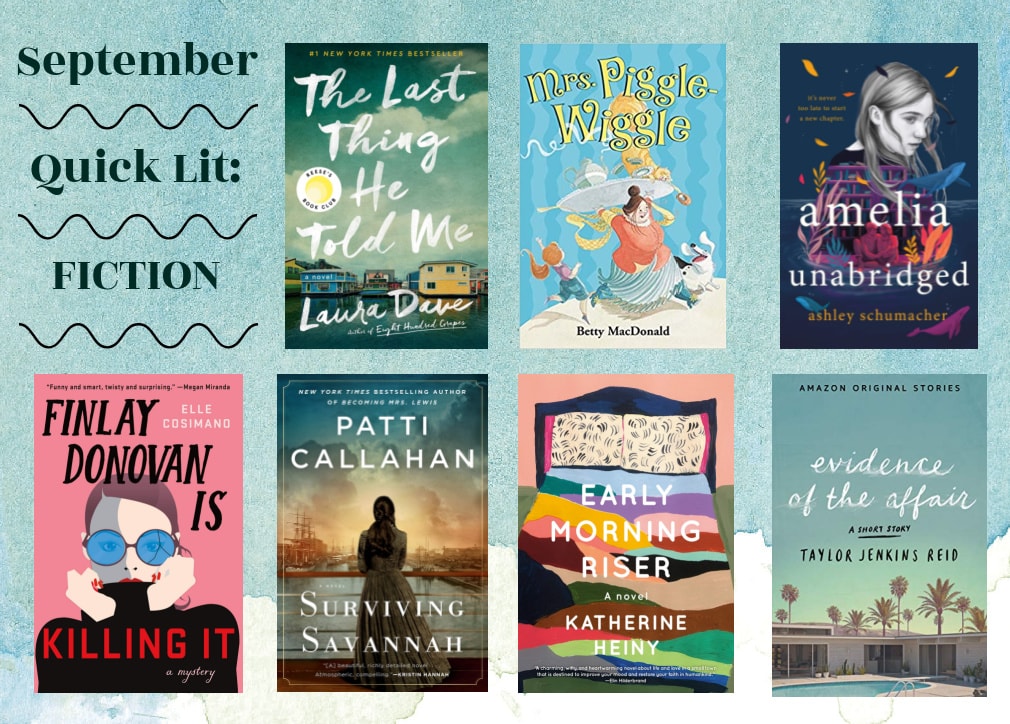
Surviving Savannah, by Patti Callahan: In June of 1838, the luxury steamship Pulaski set sail from Charleston for what was to be an overnight journey to Baltimore. The ship never reached its destination: at just before midnight, a boiler explosion cast the Pulaski to the bottom of the Atlantic Ocean, taking many of its passengers with it. Nearly two hundred years later, the wreckage has been discovered off the Carolina coast, and Savannah history professor Everly Winthrop has been asked to guest-curate a museum collection featuring artifacts from the wreck.
Everly is no stranger to tragedy, having lost her best friend in a horrific accident just one year earlier. For Everly, life has become devoid of all meaning as she grieves her friend’s death and wonders why she, Everly, was given a second chance at life while her friend was not so fortunate. Seeking purpose as well as answers to some of life’s biggest questions, Everly buries herself in her research, focusing on two women known to have been onboard the Pulaski: Augusta Longstreet, one of the few who survived the wreckage, and her niece Lily, who along with her child and wet-nurse is thought to have been lost at sea. In Lily and Augusta, Everly discovers examples of courage and resilience, and through their stories she begins to uncover similar strengths within herself.
The novel—based on the historical Pulaski sinking (known as “The Titanic of the South”)—is told through alternating timelines and from the perspectives of Everly, Augusta, and Lilly. Each woman’s story is marked by suffering but also carries hope and a unique framing of the survival theme. I found something to admire in all three women, particularly in the lessons they glean from their experiences and the ways they change and move on after tragedy. Through Augusta, Everly, and Lilly we see differing reactions to trauma, all quite believable. These three women’s manifestations of “surviving the surviving” (through tears, determination, fumbling, and graciousness) are extremely different, painting a nuanced picture of the post-traumatic experience that is helpfully juxtaposed against the journeys of characters whose trauma reactions are far less healthy.
I was unfamiliar with this historical event and found the descriptions of the Pulaski and its sinking fascinating. I wish more page time had been dedicated to the ship itself and specifically to its sinking; instead, the story focuses more on the aftermath and, of course, on the uncovering of the wreckage decades later. But while the historical parts of the novel were, for me, the highlight, I appreciated Callahan’s clever interweaving of past and present, and her examination of how one’s existence is unequivocally connected to (but not dictated by) one’s past. In the novel (as with life, I’m sure Callahan would argue), the present-day story shapes the historical one, imbuing it with meaning and context and allowing the reader to make more clear sense of issues that remained clouded at the time.
Other than the story of the Titanic, I have never given much thought to life aboard a ship, particularly a historical one, nor have I thought much about the experience of uncovering a wreck and all that might entail. I loved being introduced to the topics through this book. But as intriguing as the Pulaski story is, I was even more drawn to the discussions of the time period in general (especially the portrayal of slavery, womanhood, and life among the southern elite in the early 1800s) as well as to the book’s poignant themes of survival, the quest for answers, a desire for justice, the cultivation of empathy, an understanding of fate, and the impact of generational stories. Callahan draws some powerful conclusions about the nature of grief and the roles both choice and fate play in the survival experience.
I do think the story would have been better served by a shade more opaqueness regarding these themes: Callahan does quite a bit of spelling out of both the history (which at times reads too textbook/pedantic) and the lessons learned by our story’s characters; I wish she had trusted her reader more and moralized less. I also would have enjoyed the reading experience more if the book had been about thirty percent shorter (possibly by ramping up the mystery component and toning down the romantic elements, which are sweet but distracting). Still, this is a remarkable story and I am so glad that Callahan has brought it to the page. For fans of history, be sure not to miss the detailed Author’s note and research included at the back of the book!
My Rating: 4 Stars.
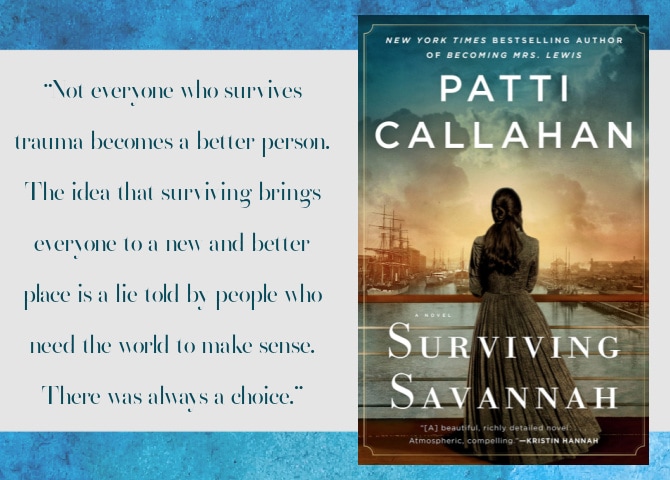
Finlay Donovan Is Killing It, by Elle Cosimano: Finlay Donovan is currently being killed (metaphorically of course) by life as a struggling novelist, an overwhelmed mother of two, and a recent divorcé whose ex-husband seems bent on watching her suffer while he enjoys a life of love and luxury. Finlay’s fate turns one morning in a Panera restaurant when a fellow diner overhears Finlay discussing the plot of her latest murder mystery with her agent and assumes Finlay is a hired assassin.
Before she realizes what is going on, Finlay finds herself hired to murder an abused woman’s philandering husband; it’s a job Finlay has no interest in taking, though the promised $50,000 IS enticing, as is the prospect of seeing the target get what’s coming to him. Finlay can’t help but look into the potential case, and one thing leads to another . . . soon Finlay and her quick-thinking nanny Vero find themselves driving through an empty field with the body of a dead man in the back of Finlay’s dilapidated van. But Finlay quickly discovers a life of crime is not as glamorous or as simple as she makes it seem in the novels she writes. Toss in a complicated new dynamic with her ex-husband, a surprise love triangle, frightening mafia ties, and a handful of side characters who aren’t who they seem to be, and Finlay’s status as the city’s most hirable contract killer is one massively tangled web that has Finlay on the fast track to getting caught—if she doesn’t get herself murdered first!
If this story sounds completely outlandish, it’s because it is—but in the best way possible! The mystery is pretty over-the-top, and is intended to be: the draw for this book is the sparkling humor and insanely lovable Finlay, who makes countless misjudgments and mistakes but is endearing and relatable and easy to cheer on (while I was also begging her to PLEASE start making some better decisions!). I also adored Finlay’s live-in nanny/accomplice Vero, who is a step above your usual sidekick and another delightfully colorful protagonist.
While this book reads like the funniest of dark comedies, the plot itself is surprisingly smart and filled with enough twists to keep me on my toes. The author pokes fun at a number of common tropes while infusing new life into other ones. I have a hard time imagining a reader who wouldn’t love this book: from mystery and humor to romance and (my favorite) a book-about-books element, it has a little something for everyone. This was the perfect late-summer read, giving me some final laughs before I begin to settle into fall’s heavier themes.
My Rating: 4.5 Stars (Rounded up to 5 Stars on Goodreads.)
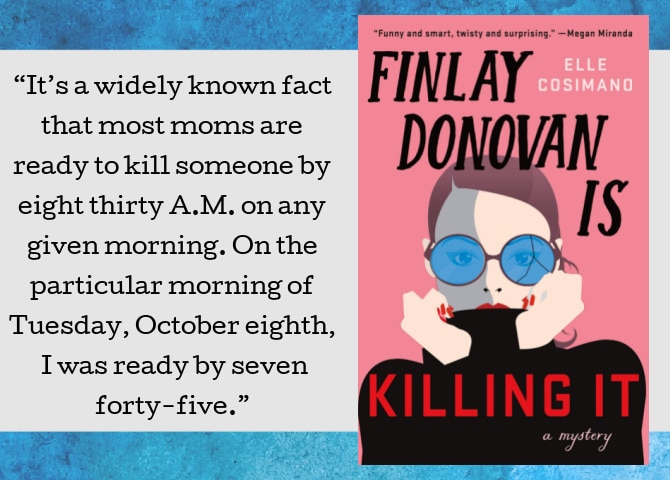
The Last Thing He Told Me, by Laura Dave: Hannah and Owen have been married less than two years when Owen disappears, leaving behind nothing but a bag full of cash and cryptic note for his wife: Protect Her. The “her” referenced is obviously Owen’s 16-year-old daughter, Bailey, whom Hannah has been hopelessly attempting (and failing) to connect with in their time as step-mother and step-daughter. At a loss as to why Owen would leave, and desperate to locate her missing husband (and, more importantly, to fulfill Owen’s wishes), Hannah embarks on a fact-finding journey to discover where Owen has gone, and why he felt the need to disappear. His family isn’t the only one interested in Owen’s whereabouts: a US Marshall and FBI agents have also shown up, wanting to question Owen regarding a major scandal at the startup firm where Owen works—a scandal that may or may not have been the impetus for Owen’s disappearance.
With little to go on but a few loose connections and Bailey’s childhood memories, Hannah’s personal investigation brings the (step)mother/daughter duo to the city of Austin, Texas, where they soon discover that Owen was not at all who he said he was. But even though parts of Owen’s life might have been fabricated, Hannah refuses to believe that she was wrong about his character. Driven by loyalty to Owen and his beloved daughter, Hannah will stop at nothing to uncover the truth and bring restoration to their family. Through flashback chapters, we get glimpses into past moments in Hannah and Owen’s relationship that shed light on current happenings and reveal the once-unnoticed chinks in Owen’s carefully crafted identity.
Though she’s a seasoned author, Laura Dave is new to writing thrillers, and her inexperience with the genre is evident. There are numerous nonsensical plot points and the series of clues (and the conclusions drawn from them) requires a LOT of suspension of disbelief. Despite these shortcomings, I found this to be an enjoyable read. Prior to picking this book up, I did not know that the city of Austin would figure so prominently in the story, and it was fun to read about a city I know well. I also really loved the dynamic between Hannah and Bailey, particularly Hannah’s relentlessness in pursuing and protecting her step-daughter (a relationship not portrayed very often in fiction, especially not so positively). This is an unusual yet endearing motherhood story, and Hannah’s commitment to her family and her values, the sacrifices she makes on others’ behalf, and her willingness to believe the best about those she loves (despite strong evidence to the contrary), was inspiring and an absolute joy to read, even in the midst of a fairly sad story.
Other themes explored in the novel include identity, perceptions, the inherent goodness or evil of every human (and the ambiguity within these labels), our capacity for making choices, the importance of truth and honesty, and the ways we are limited or expanded by our pasts. These themes and characters, along with an interesting plot structure and strong sense of place (from houseboat homes of Sausalito to UT campus and the streets of downtown Austin), combine to form a worthwhile read that stands out as something a little different in this genre.
My Rating: 4 stars.
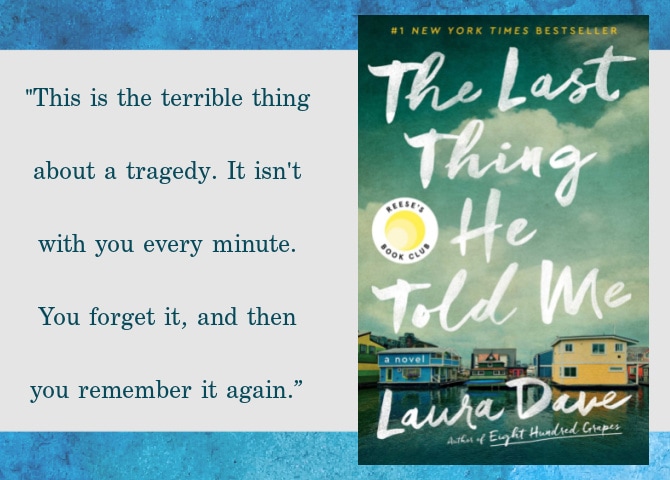
Early Morning Riser, by Katherine Heiny: Jane, a twenty-six-year-old elementary school teacher new to the small town of Boyne City, Michigan, has been in her new home for less than a month when she falls head-over-heals for the handyman who arrives on her front steps one evening to save the day. Duncan is a forty-something charmer with a warm smile, amber eyes, and a reputation as the town’s most eligible (and least likely to settle down) bachelor. Loving Duncan is easy, but Jane has difficulty stomaching the fact that Duncan has slept with nearly every woman in town. Jane and Duncan’s relationship quickly becomes uncomfortably crowded, with everyone from Duncan’s prickly ex-wife Aggie to his special-needs employee Jimmy vying for space in Duncan’s life.
When tragedy strikes close to home, Jane reevaluates her expectations for life and love as her understanding of the world around her undergoes a seismic shift. In her attempts to sort through guilt and grief, Jane takes on new responsibilities and lets go of old dreams, only to discover that joy and fulfillment can be found in the most unexpected places.
This novel is fairly light on plot, and parts of it are a little cringey (the descriptions of Duncan’s love life grew cumbersome), but I was instantly drawn in by the wry humor, endearing anecdotes, insightful prose, and the author’s ability to capture the sweet quaintness of small-town life. The characters are believable and charming, especially Jimmy, with his immutable optimism, childlike wonder, and deceptively wise understanding of the world; the connection Jane forms with Jimmy, and the sacrifices she makes to protect his heart and his spirit, are inspiring and more than a little tear-inducing.
This is a story of laughter and tears, of found family and foundational friendship, of self discovery and sacrifice, and the beauty, humor, heartbreak, and fulfillment that can be found within the mundane. Early Morning Riser had me appreciating the small unexpected blessings within my own story. Such a sweet little novel, lovingly written and easily absorbed.
My Rating: 4 Stars.
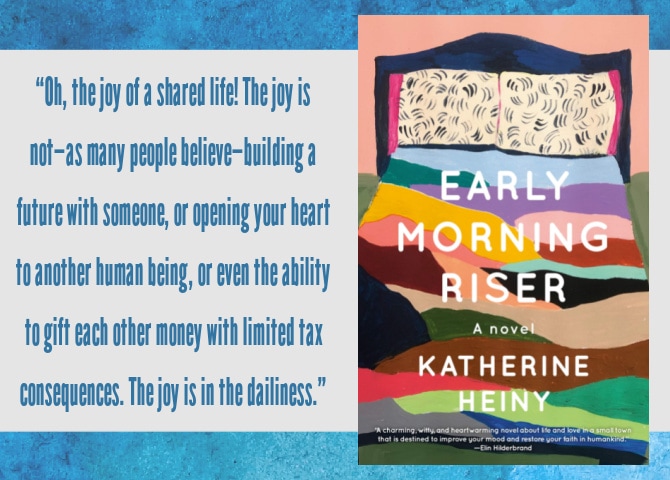
Mrs. Piggle-Wiggle, by Betty MacDonald: This was Charleston’s and my first “assigned” read-aloud of first grade (recommended by the curriculum we are using this year). We’ve read from this series in the past and were both excited to share this first book that started it all. Written in 1947, the Mrs. Piggle-Wiggle books tell the story of a magical woman who lives in an upside-down house (that’s Charleston’s favorite part) and offers cures and solutions to all of the neighborhood children’s poor habits and behavioral ailments. She helps children solve problems of staying up too late, eating too slowly, refusing to bathe, and more. The stories are delightfully sill, marked with humor as well as quite a few notable lessons on responsibility, etiquette, and good character. Charleston and I giggled at the outlandish names, made predictions as to how each problem might be solved, and drew parallels to his own behavior. With its extensive vocabulary and window into a distinctly different time (with its differing technology, standards, and familial roles), this offered a superb reading and learning experience.
I will note that aspects of the story are pretty dated. In addition to some terminology and attitudes that are no longer appropriate, as well as gender stereotypes that haven’t aged well, aspects of the story are problematic in view of what we know today about child psychology and development. While I found the lighthearted approach to solving problems refreshing compared with today’s tendency to pathologize and overthink our children’s behavior and our responses/discipline, there are a few chapters that I feel are a little too quick to ignore the deeper psychological problems involved. For instance, the chapter on a boy who eats too slowly makes light of what is clearly an eating disorder, offering a simple solution to an issue that is far from simple. I recognize we don’t need to take ourselves quite so seriously with these sorts of things, especially when they appear in books for children, but it is worth noting and discussing with young readers. I found it helpful to talk with Charleston about how and why these cures work and also mention how some kids can’t simply “get over” their problems like they do in these stories. . . and that’s okay.
Despite these small concerns, I just love this story and am so happy Charleston does too.
My Rating: 4 Stars.
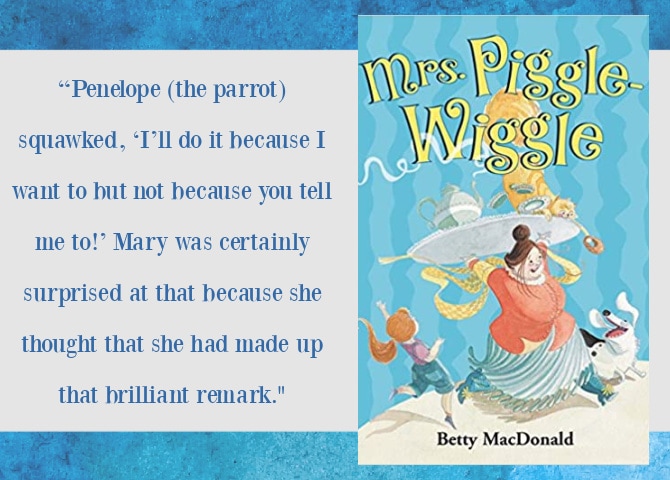
Evidence of the Affair, by Taylor Jenkins Reid: I was excited to discover (thanks to Modern Mrs. Darcy) this gem of a novella by a favorite author, even more excited to learn it was free on Kindle! The story is told in a series of letters; I know this format isn’t for everyone, but I don’t think I’ve read a single epistolary book I didn’t love, and this one is particularly well executed.
Set in the 1970s, the book begins with a desperate letter from a heartbroken wife, Carrie, to a stranger named David whose own wife is romantically involved with Carrie’s husband. Carrie and David begin an increasingly warm correspondence as they grapple with how to handle the secrets they have uncovered. Through their letters, Carrie and David comfort one another as they mourn the imminent demise of their marriages and the loss of what they thought they had. Interspersed between Carrie and David’s letters are “evidence of the affair”—passionate letters between the two cheating spouses that paint a slightly different picture of the complicated web of relationships.
This quick read covers a lot of ground, digging into the complexities of marriage, the realities of love lost and found, the nature of grief and of friendship, and the power of kindness, goodness, hope, and courage in the face of adversity. The story doesn’t play out as I expected it to, and I have mixed feelings about the ending, as well as the conclusions it draws regarding infidelity, loyalty, and the moral ambiguities within romantic relationships. However, I did find the end quite satisfactory and largely redemptive. It was fun to encounter Daisy Jones and Malibu Rising Easter eggs, and I loved the San Diego/Orange County setting with references to cities I know well.
Once again TJR has blown me away with her ability to combine a depth of emotion and realness with unique and engaging storytelling. If you have an hour of reading time to fill, you won’t regret giving this novella your time.
My Rating: 4 Stars.
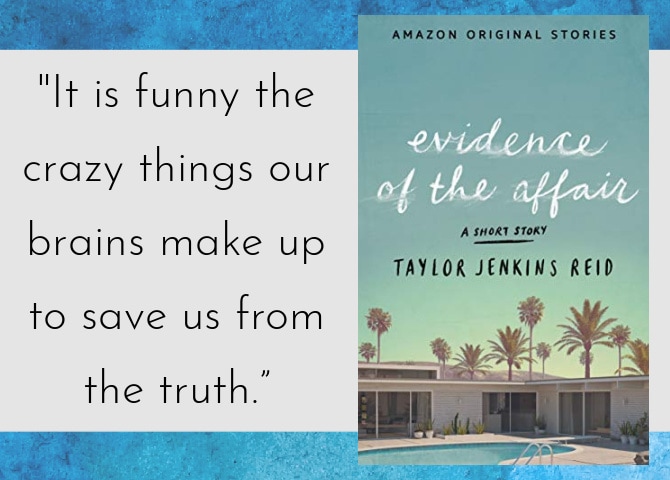
Amelia Unabridged, by Ashley Schumacher: Best friends and book buddies Amelia and Jenna anticipate the experience of a lifetime when they celebrate the end of their last summer before college by attending a book festival where they hope to meet N.E. Endsley, author of the famous Orman Chronicles (the series that first brought Amelia and Jenna together). Plans go awry when Endsley backs out of his appearance at the festival and Jenna gets the opportunity to meet the author while Amelia does not. Amelia’s resentment leads to a fight that is never resolved because Jenna is killed in a freak car accident, leaving Amelia to grieve the loss of her friend and the future they had planned together.
A mysterious series of events draws Amelia into her own encounter with N.E. Endsley, who is not at all the dashing author she’d imagined. Together Amelia and the author she idolizes embark on a journey towards love and healing as they embrace the power of story, relinquish past dreams and adopt new ones, and learn what it means to go on when life has stopped for the ones we love most.
I’m on record for not loving YA romances so it’s no surprise that this one wasn’t a runaway hit for me. I liked the author/bookish tie-ins, but not the fangirl element, and I didn’t care for the story’s predictability or the archetypal characters. The pacing felt off, rushing through pivotal parts of the story and drawing out other parts for far too long. And though the book offers a heartfelt and potentially relatable exploration of grief (specifically grief over the loss of a friend, something I don’t see often but that happened to show up in TWO books I read this month), I found the emotions a little too angsty for my taste.
However. . . the prose is very good, especially for YA, and there are quite a few sweet moments that had me swooning. The cherry on top of this sugary love feast is the ending, which is fairly extra on the saccharine meter, but succeeded in making me smile. So, while this book didn’t totally land with me, I have to admit that for the right audience, it will make a delightful read.
My Rating: 3.5 Stars (Rounded up to 4 Stars on Goodreads).
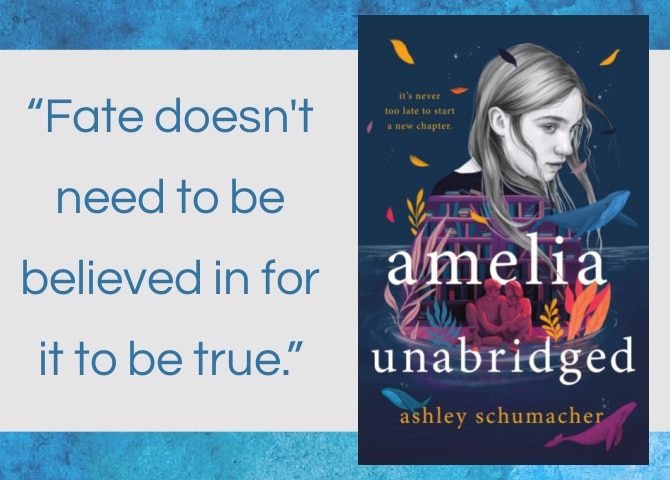
In case you missed it, you can find all of this month’s Nonfiction book reviews right here:
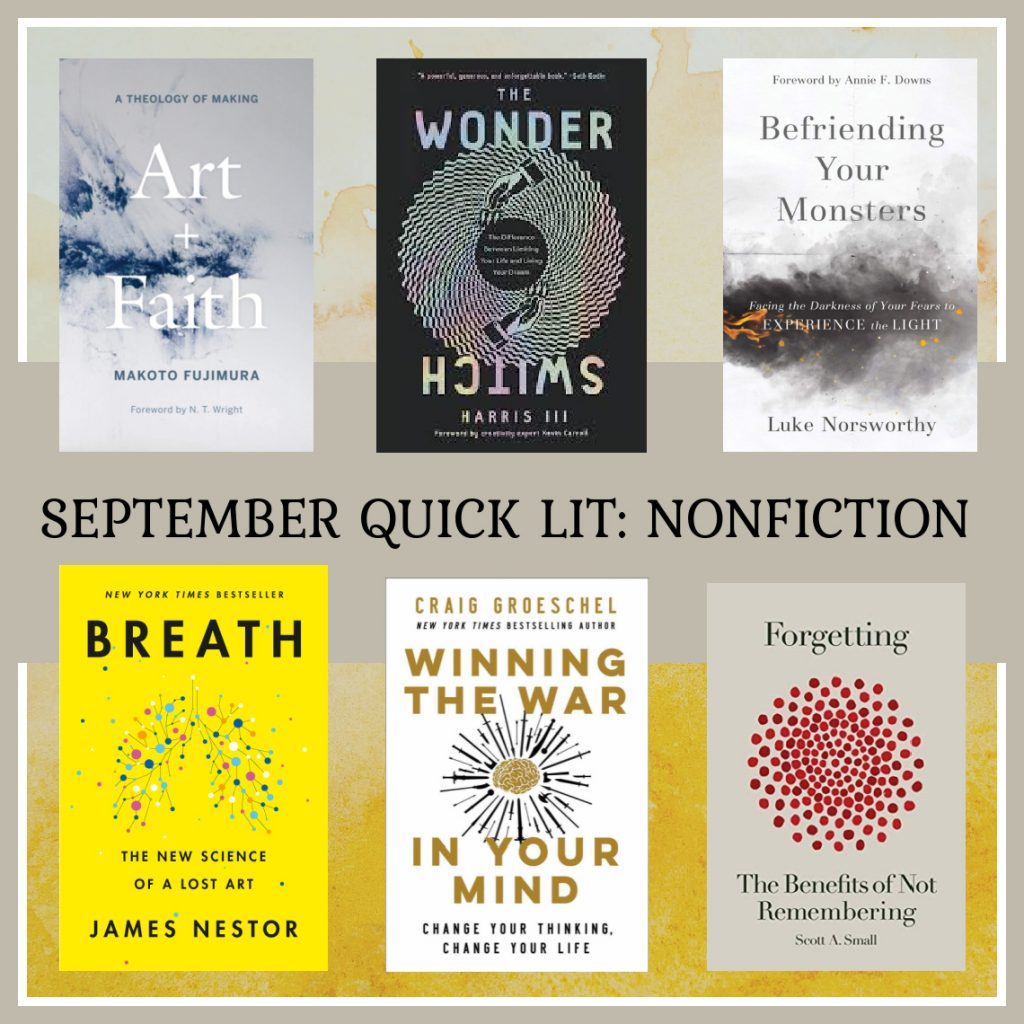
Of course, I’d love to know what you have been reading and loving (or hating!) lately.